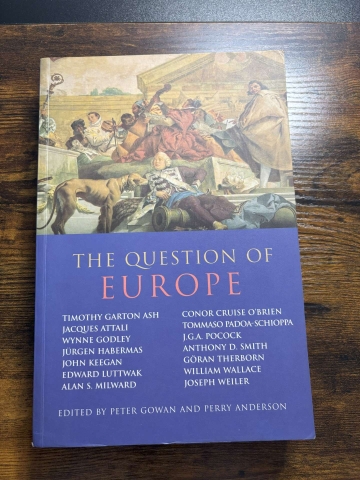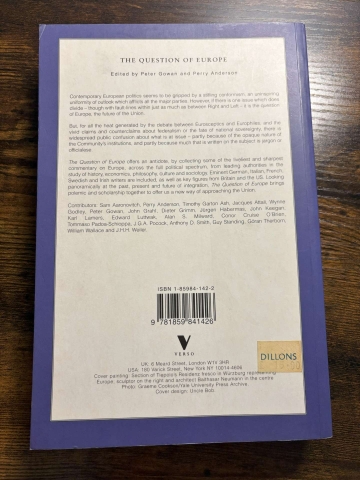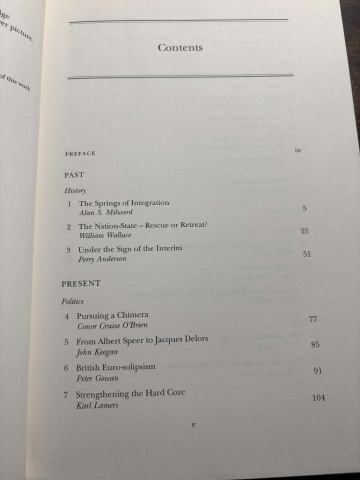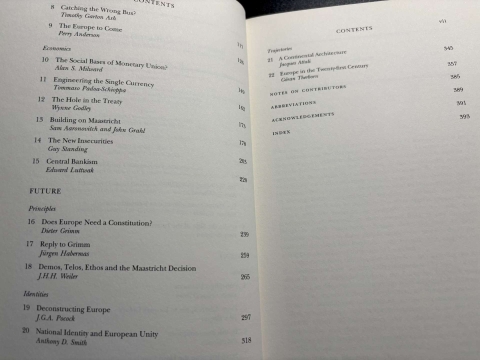Este livro está na lista de favoritos de 1 utilizadores.
A critical political and economic analysis of the European Union and its historical development, especially in the post-Cold War period.
Main Themes:
1. Critique of European Integration
Both Anderson and Gowan examine the European Union (EU) as a political project shaped by elite interests. They argue that rather than representing a democratic federation or progressive unification, the EU has increasingly functioned as a technocratic and neoliberal structure that curtails national sovereignty and democratic accountability.
2. The Role of Germany
A recurring theme is the dominance of Germany within the EU's political economy. The authors scrutinize how German monetary policy, especially after the creation of the Euro, shaped the EU in a way that benefits Northern economies while constraining the development of Southern and peripheral member states.
3. The Eurozone and Neoliberalism
Gowan particularly focuses on how the Eurozone architecture embeds neoliberal economic principles, enforcing austerity and structural reforms. The Maastricht Treaty and the Stability and Growth Pact are criticized for institutionalizing market orthodoxy at the expense of social democracy.
4. Geopolitical Context
They place the EU within a broader global context, considering its relationship with the United States, NATO, and global capitalism. Gowan was especially interested in the EU’s position in a unipolar world order dominated by the U.S., and how European integration was partly a response to American hegemony.
ISBN: 1859848362
Capa mole
399 páginas






